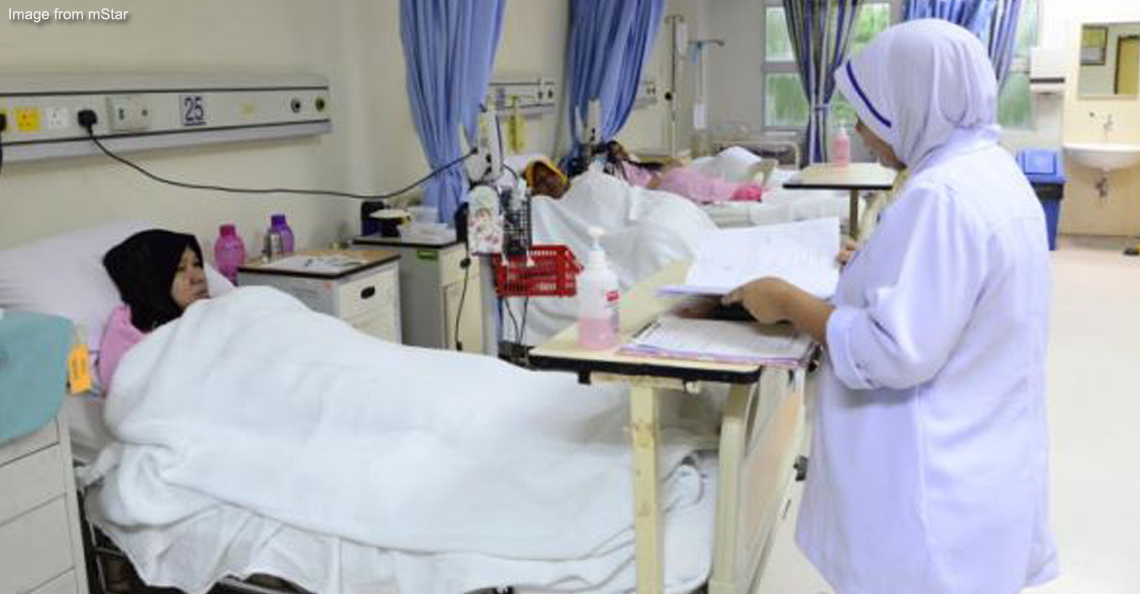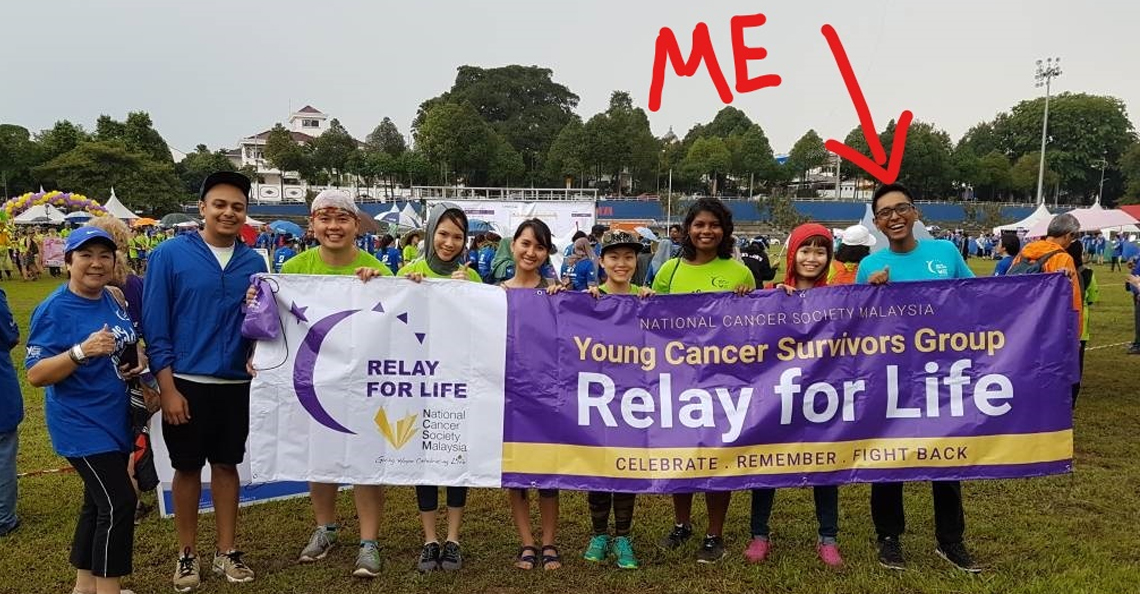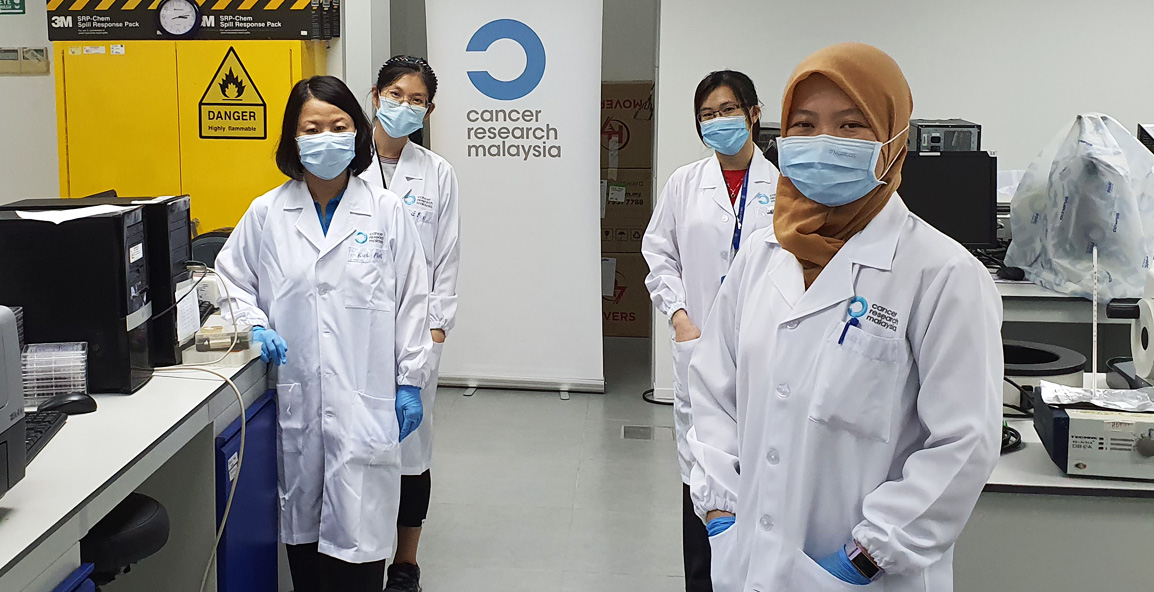Oncologist debunks 5 common misconceptions M’sians have about breast cancer
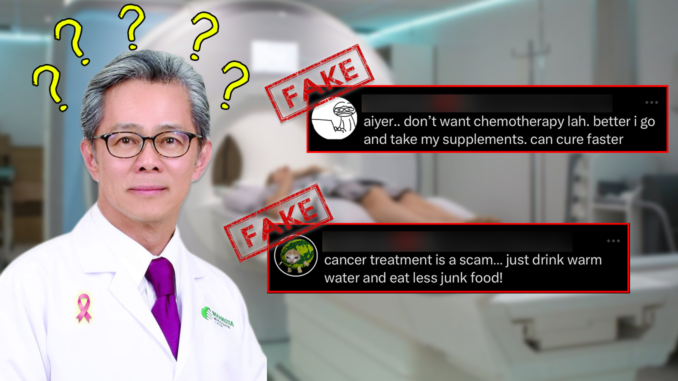
- 46Shares
- Facebook40
- Email1
- WhatsApp5
In 2022, the Department of Statistics Malaysia (DOSM) reported that breast cancer was the 10th leading cause of death amongst Malaysians… making up around 1.5% of all deaths in Malaysia. There also seems to be a surge in cancer cases locally, which may have caused some Malaysians to turn to unconventional methods in an attempt to “cure” their cancer. However, the usage of these unverified forms of treatment have also been said to contribute to a rise in cancer deaths, which showcases a dangerous misconception associated with cancer treatment.
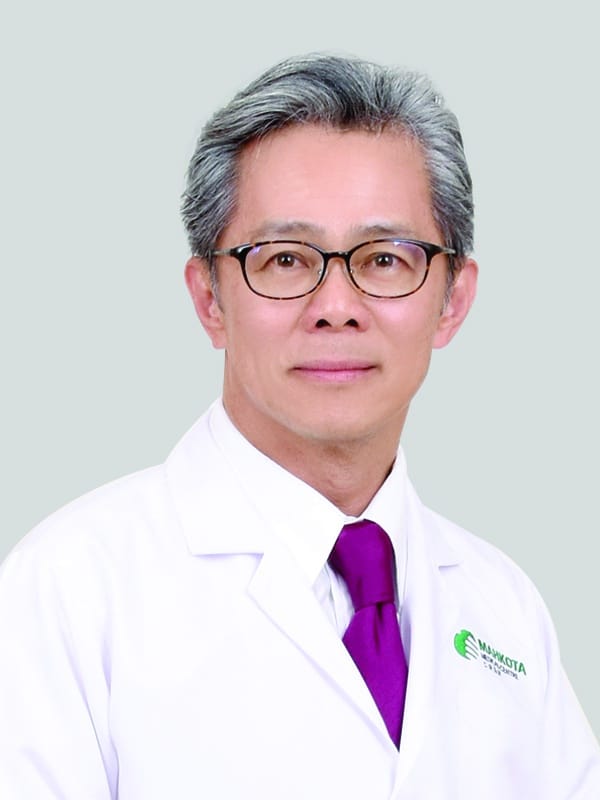
So when we got the chance to speak to Dr. Chong Kwang Jeat, a clinical oncologist at Mahkota Medical Centre Melaka that specialises in treating breast cancer, we decided to ask him to help us debunk some of the biggest misconceptions that people may have towards breast cancer here in Malaysia. To which, he enthusiastically obliged!
So, here are some of the biggest cancer treatment misconceptions… DEBUNKED. Starting with:
Misconception 1: Only women can suffer from breast cancer
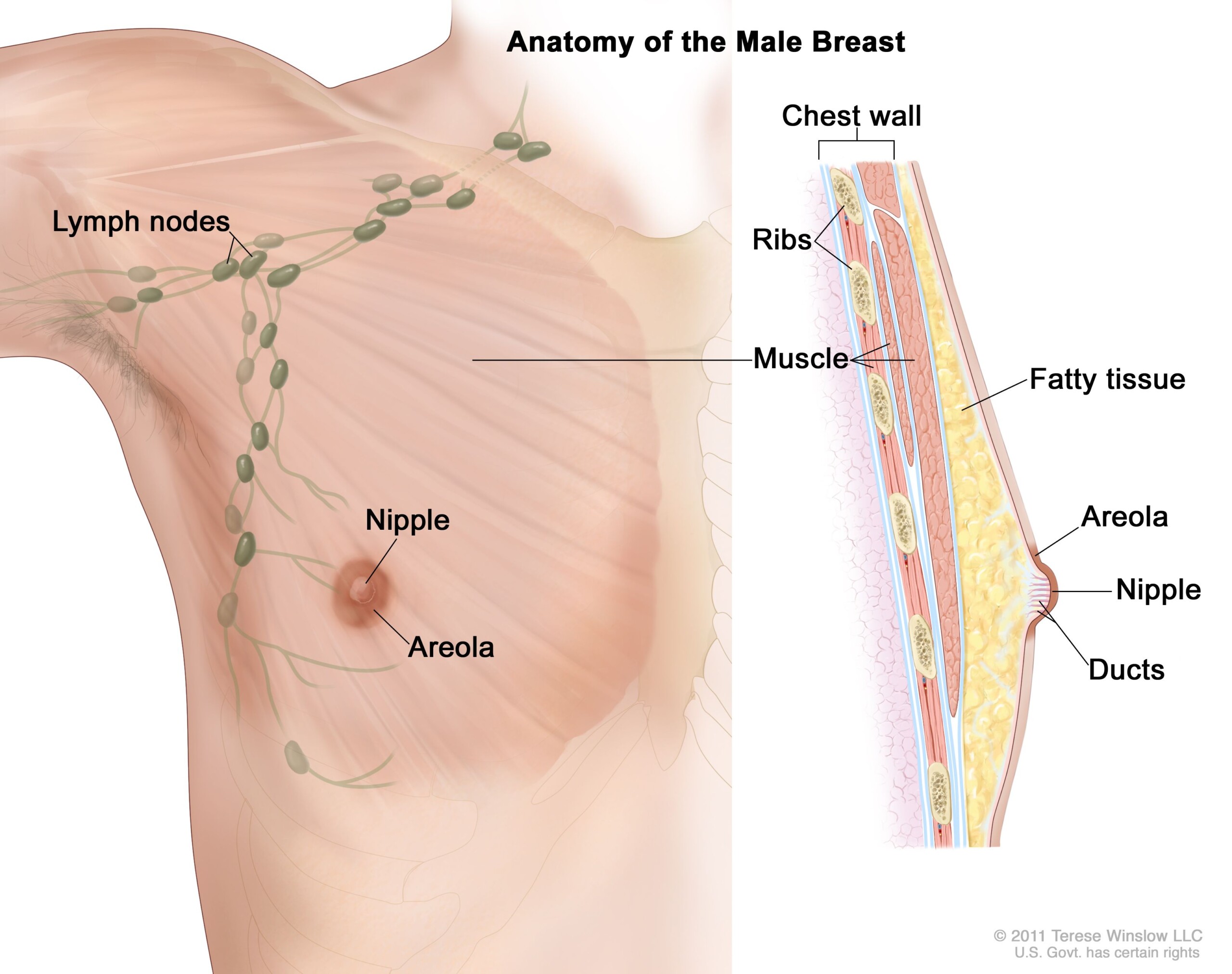
Though most patients that come in for breast cancer treatment would typically be female, Dr Chong mentioned that he has also treated male breast cancer patients… though the ratio of which is still quite slim.
“Of course, it can happen to men too, but it is very uncommon. Throughout my years of practice, I’ve had a couple of male breast cancer patients, though I can’t remember having any [male breast cancer patients] recently.
According to statistics, male breast cancer constitutes about 0.5% to 1% of all breast cancers. But it still does happen- because don’t forget, men also have breasts.” – Dr Chong Kwang Jeat
He also added on that the breast, just like any organ in the body, has tissues that have the potential of developing cancerous cells… albeit male or female. However, the type of breast cancer that an individual that is diagnosed with can still differ, which brings us to the second misconception…
Misconception 2: All breast cancers are the same

Most of us would think that the only thing that differs between two individuals with breast cancer are their cancer stages. However, Dr Chong was quick to inform us that there are actually many different types of breast cancer. Though, they are typically broadly classified into one of three categories:
- Hormonal receptor-positive/HER2 negative: About 70% of breast cancer patients belong to this group
- HER2 positive – About 15% of breast cancer patients
- Triple negative – About 15% to 20% of breast cancer patients
According to Dr Chong, these broad categorisations along with the stages of cancer, are integral to helping oncologists understand the characteristics of a patient’s breast cancer, and what treatment would be the most suitable in their case. Interestingly, Dr Chong shared with us that he’s personally observed a rise in Stage 1 Cancer cases– which may be a good thing because people are now coming in for treatment before it progresses.
But speaking of treatment, another common misconception that people typically have towards cancer treatment is that…
Misconception 3: Every breast cancer patient will undergo chemotherapy
Typically, if you were to think about cancer treatment- your mind would most likely visualise chemotherapy and the subsequent hair loss it could cause. Which, according to Dr Chong, tends to scare patients away. But as it turns out, that’s not always the case. He shared with us that in many cases, patients may not even necessarily need chemotherapy. Though it would still highly depend on the type of breast cancer that a patient has.
“Sometimes, patients “run away” from treatment because they are afraid of getting chemotherapy. But actually, sometimes chemotherapy is not even necessary to begin with.
For example, if a patient belongs to the estrogen receptor-positive/HER2 negative breast cancer group and is still in the early stage (stage 1), often times, they may not even need chemotherapy! Even if they were in the advanced stage 4 of breast cancer, we still wouldn’t use chemotherapy upfront.
We have so many other drugs, such as CDK4/6 inhibitors with hormonal therapy, which are just treatments that patients can take which could prolong their lifespan for years, and provide them with a good quality of life after!” – Dr Chong
But while chemotherapy is often seen as a traditional, and non-targeted approach, Dr Chong shared that it is still an important form of treatment that is needed in certain situations. He also emphasized that often times when it comes to treatment, it is not a one-size-fits-all approach.

He highlighted that it’s about giving the right treatment to the right patient, at the right time – an approach called “precision medicine“, which tailor-makes treatment plans according to a patient’s genetic makeup and the genetic profile of a person’s cancer; taking into account any comorbidities, and even the patient’s own personal wishes.
Which brings us to the next misconception…
Misconception 4: Patients have no say in what kind of treatment they want
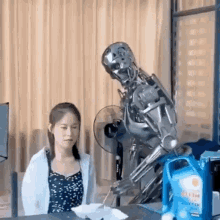
Like Dr. Chong mentioned, with the precision medicine approach, the treatment that a patient undergoes depends on several factors such as their genetics, any comorbidities that the patient has, and the genetic profile of the cancer (the type of cancer, etc.). However, he also highlighted that it is ultimately up to the patient themselves to agree to the treatment that is recommended by the oncologists, and that they have the biggest say in what form of treatment they would be comfortable with, and what would work best for their own circumstances.
“Everyone is unique. Some patients might tell me that they would be alright with any form of treatment, as long as they don’t lose their hair. Some patients might come from different socio-economic backgrounds and are not be able to attend treatments as often, because they live in different countries or states, and do not want to lose their job.
With some patients, even if we propose a great treatment, they might not be able to afford it due to limited insurance. And these are real life issues. So, after knowing these factors in their lives, we have to then tailor-make a treatment that is suitable for that particular patient that’s sitting in front of us.
The preference of the patient is very important, and we have to respect their choice as a human being.” – Dr Chong
However, things can take a more harmful turn when patients decide to take treating cancer into their own hands, instead of consulting a medical professional, through…
Misconception 5: Alternative medicine can cure breast cancer
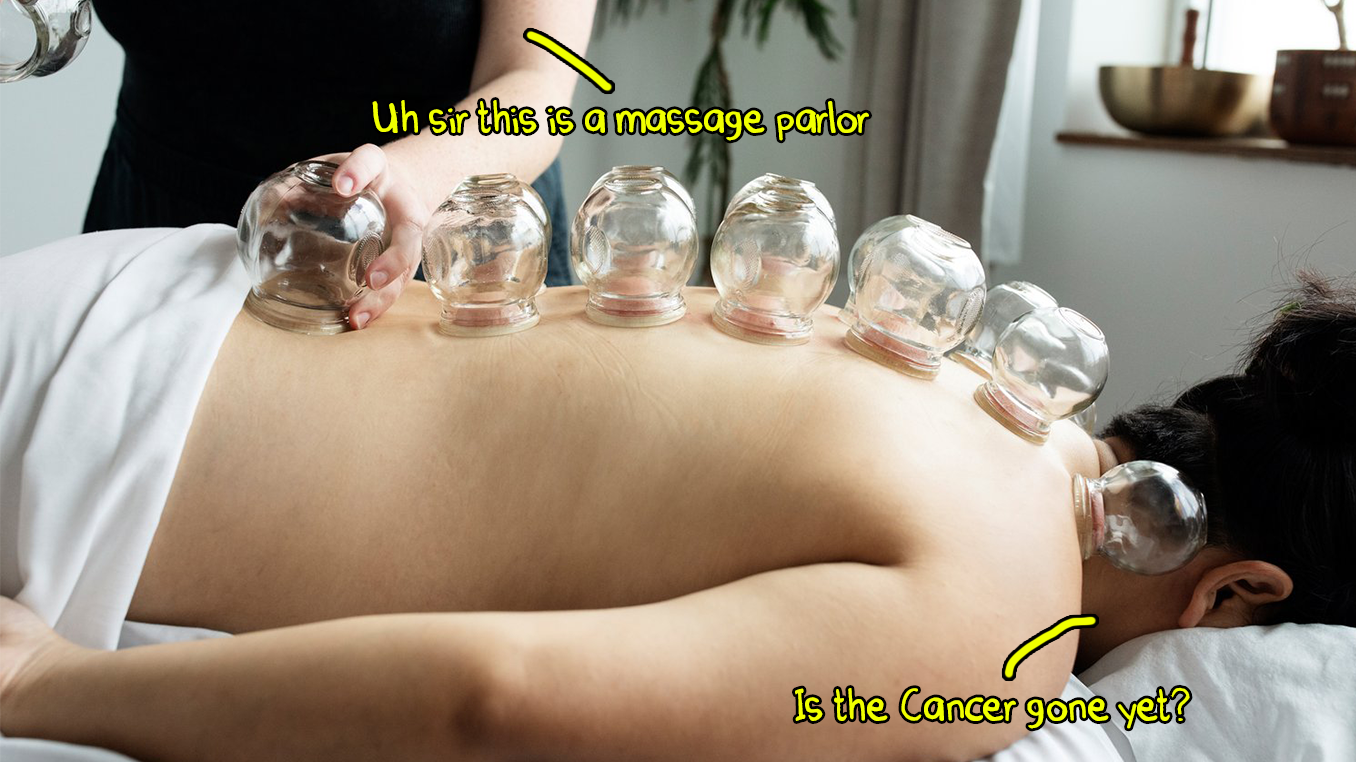
Just like how we mentioned at the start of the article, there seems to be a growing concern about cancer patients turning to alternative methods, in an attempt to treat their cancer. And while some forms of traditional medicine (or in this case, TCM) could be considered for usage in the treatment of minor ailments such as the common cold, there is still a lack of reliable scientific data to confirm its usage to cure cancer- although research is still being conducted extensively in this area.
And while the usage of legitimate traditional methods may not always be harmful in and of itself, its danger comes with the prevalence of counterfeit medication being sold on the market, or when supplements have a negative interaction with other forms of medication which could cause severe side effects. Another additional risk is when individuals rely completely on these traditional methods, instead of consulting a physician… a risk that boils down to time.
“I think that alternative forms of treatment should be guided by data. And currently, I don’t think that there is any reliable evidence that these treatment methods can cure any forms of cancer. I have seen patients undergo the wrong treatment- and often, there is unfortunately no second chance for cancer.
If a patient has Stage 1 Cancer, and misses the boat [for treatment]- and the cancer has progressed to the advanced stage, there is no going back. That is why it is so important to have the appropriate treatment immediately.
You can’t just say you want to try this alternative treatment first, or try this supplement or faith healing first, before you want to see the doctor. Sorry, there is no second chance. There is a window of opportunity, that when you miss it, it is gone.” – Dr Chong
He also warned against the usage of social media platforms, that may entrap individuals in an echo chamber, that would simply reinforce their own ideas without actually seeking out reliable evidence that contrasts their own opinions. As such, he advised patients to still seek verification from a medical professional when in doubt.
But of course, how any patient decides to go about their own treatment plan is ultimately their own decision, because…
Every breast cancer patient experiences things differently
One of the biggest things that Dr Chong highlighted is that no two cancer patients are the same, and it doesn’t just differ in the types of treatment… but also in the way they perceive their struggles.
“I think the most important thing to understand is that everyone is different. Everyone’s cancer is different. Every person’s personality and character is also different. Their backgrounds, and socio-economic statuses are also different.
As such, their concerns are also different- because being diagnosed with cancer is this big disruption that’s happened in their lives. They feel overwhelmed. Patients have told me that they’re worried about so many things; their self-image, their sexuality, their spouses and families, their daily routines, and more.
Which is why I think it’s best to take on an individualized approach, where patients tell doctors their current issues and we find a way to give the right treatment to the patient at the right time.”
As such, Dr Chong shared that his approach to cancer is a patient-centric approach, whereby a multi-disciplinary team (comprised of surgeons, oncologists, radiologists, dietitians, etc.) would discuss a patient’s case together to see what would be the best treatment specifically for them. Thus, streamlining and making the process smoother and more accurate. He added on that Mahkota Medical Centre also possesses a program that is JCI-CCPC certified, which is a certification that is not possessed by many centres in Malaysia.
So, if you’re interested in finding out more about what Mahkota Medical Centre has to offer in terms of their clinical oncology and for breast cancer treatment, you may visit their website at https://www.mahkotamedical.com.
Additionally, with many individuals living with cancer still finding ways to go about their daily lives, even during their recovery, it can be pretty challenging at times to keep track of their treatment. As such, the folks over at Novartis Malaysia have come up with the ICanCare app, which focuses on making managing your health a bit easier– whether it’s keeping track of your appointments and medication, or getting other forms of support while undergoing treatment. You can download the app via the Google Play Store or through the Apple App Store.
- 46Shares
- Facebook40
- Email1
- WhatsApp5

